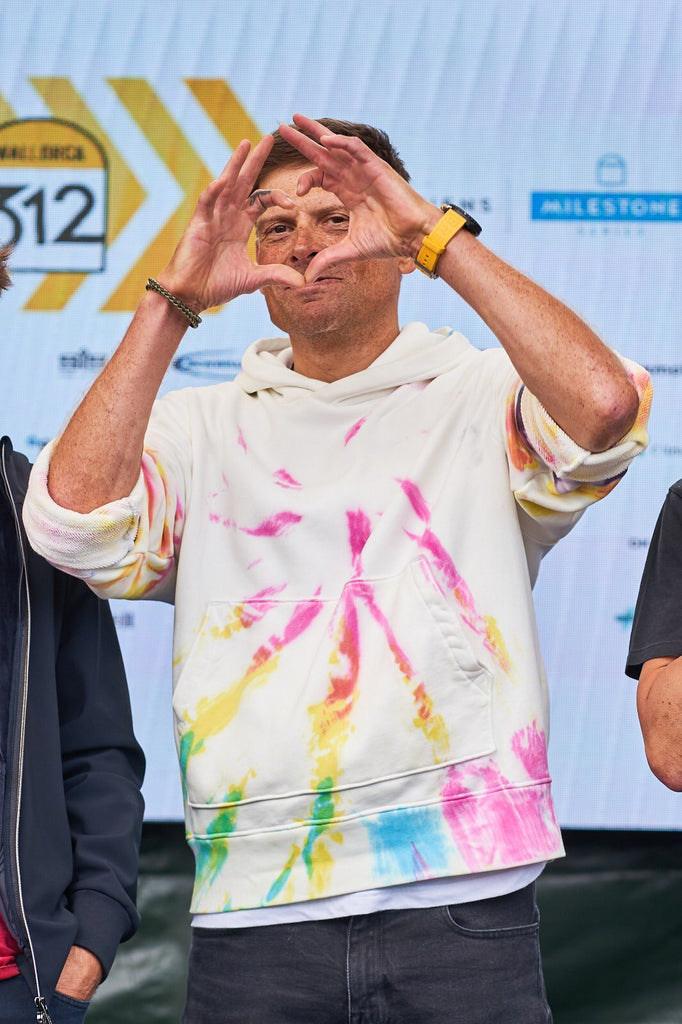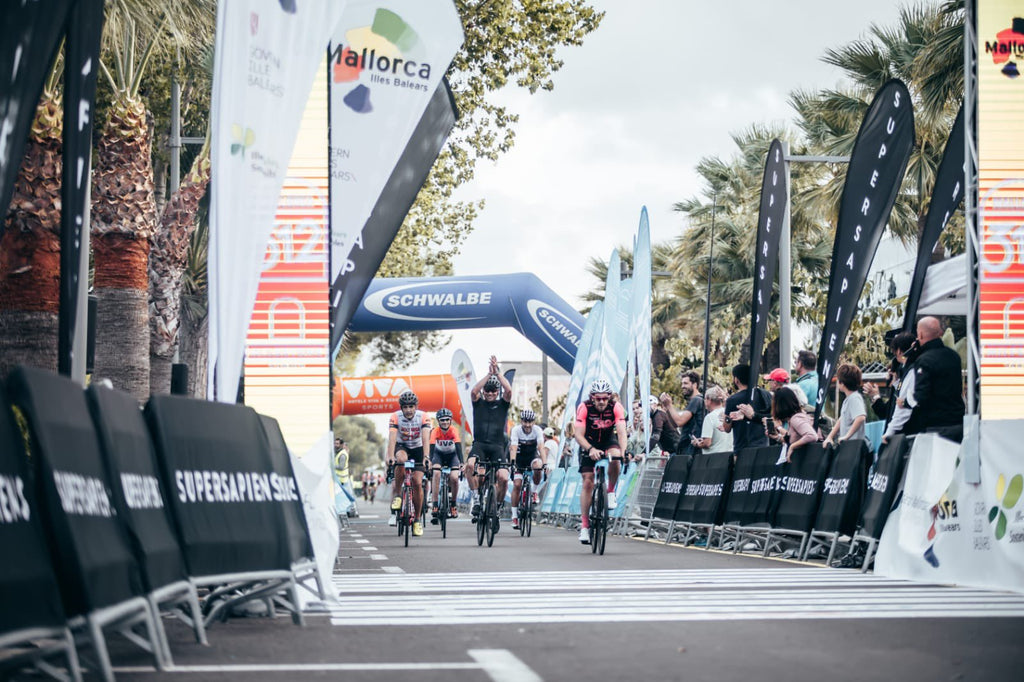The Uruguayan poet Mario Benedetti wrote: "Do not save yourself, do not fill yourself with calm, do not set yourself aside from the world, just find a quiet corner".
Former German cyclist Jan Ullrich reappeared for the first time on a public stage at the Mallorca 312 Gran Fondo event. Since his ostracism following the Operation Puerto investigation and his belated confession of doping during his sporting career, the former winner of the 1997 Tour de France has drowned in alcohol and been lost to drugs, starring in a number of scandals.
In Mallorca, I had the opportunity to interview him. Since I didn’t live through his glorious years or his decline, it was the recent past that had shaped my opinion of him. To avoid going to the interview full of judgement, I spoke to those who lived through his glorious days of cycling, from near or far, to get a more balanced and complete view of his character before our meeting.
Related – Jan Ullrich: I thought everyone would love me

I met a modest but delighted Jan Ullrich. He arrived with his girlfriend and a couple of friends, one of whom was responsible for accompanying him on the 312 kilometre challenge he would undertake in Mallorca. Though I would have hoped to ask him more, the interview had to be kept light and easy-going at his request. However, I still saw him consistent with his past. "This is what I need in my life," he said when discussing the event. "I'm in good shape, I love cycling and all this together, I think it makes my life more interesting." It is his quiet corner.
Related – IL MIGLIORE. Marco Pantani. Film review
Once the interview was over, the wider public’s reaction to Ullrich was another aspect of the trip that answered some of my questions. To my surprise, other participants of the event greeted him with fervour and admiration. It was even more shocking to Ullrich, who, no longer needing to walk with his head down out of embarrassment, began to smile fearlessly. It could be said that these people have no memory.
In Mallorca I realised that much of the public had forgiven him and showed their admiration without reproach. It seemed to be that nobody wanted the story of Jose María Jiménez “Chava” or Pantani to be repeated. Through the applause they did not whitewash his past, for which he already paid a higher price with the Court of Arbitration for Sport's condemnation. They were encouraging a person in his rehabilitation, a person in the search for the path that will bring him back to life on a vehicle common to all of us: the bicycle.
 We chatted about the present but with inevitable references to the past. We quickly fell to comparing his palmares - he won the Tour de France at the age of 23 and was responsible with his Telekom team for the cycling boom in Germany - with Remco Evenepoel, on whom the pressure of a whole country's cycling faith is falling. "Maybe I was too young to handle that pressure," he reflects. "In my life I've made a lot of mistakes and had a lot of ups and downs. Ours was a generation marked by the problem of doping and EPO.” He refers to the current generation as "clean and very beautiful cycling. This generation is more complete; it is a step above ours".
We chatted about the present but with inevitable references to the past. We quickly fell to comparing his palmares - he won the Tour de France at the age of 23 and was responsible with his Telekom team for the cycling boom in Germany - with Remco Evenepoel, on whom the pressure of a whole country's cycling faith is falling. "Maybe I was too young to handle that pressure," he reflects. "In my life I've made a lot of mistakes and had a lot of ups and downs. Ours was a generation marked by the problem of doping and EPO.” He refers to the current generation as "clean and very beautiful cycling. This generation is more complete; it is a step above ours".
"I watch all the cycling races," he tells me. "My favourite riders are Peter Sagan, Alejandro Valverde, Julian Alaphilippe and Tadej Pogacar. But above them all there is Miguel Indurain. He is my hero”.
How do you see Alejandro Valverde? He's 41 years old and he's still there, I ask.
“Valverde raced with me, with me! And I'm very old. You can tell he loves cycling. This is a very hard job and he is always motivated. Even if he crashes in the Vuelta and then has to have surgery and be out for three weeks, he comes back and wins. That's special and unique about him. There are not many champions like him,” responds Ulrich.
Though he likes to talk about cycling, he doesn't miss anything from his professional career. "Nope, nope, nothing,” he says.
At the presentation of the gran fondo, we experienced an emotional reunion with Joseba Beloki, whom Ulrich hadn't seen since his crash in the 2003 Tour. It was the same story with Óscar Freire, Pedro Horrillo and Alberto Contador. No bending over backwards. Once again, the public's ovation lifted his soul. The social networks were filled like I had never seen before, or could imagine, with positive messages, congratulations and above all with the word: "idol". Overflow. Despite not having any obligations with the organisation, Ullrich was always available.
 Ullrich first returned to the bike some time before at the training camp for millionaires organised by Lance Armstrong, along with George Hincapie and Johan Bruyneel on the same island of Mallorca. "I arrived in a situation like Pantani's, almost dead", he confessed to them. Since then, the German has lost weight and looks in great shape. "There was a time when I stopped cycling, but in the last few months I've started training again and it gives me a lot of energy. Sport is my drug and I love cycling," he says.
Ullrich first returned to the bike some time before at the training camp for millionaires organised by Lance Armstrong, along with George Hincapie and Johan Bruyneel on the same island of Mallorca. "I arrived in a situation like Pantani's, almost dead", he confessed to them. Since then, the German has lost weight and looks in great shape. "There was a time when I stopped cycling, but in the last few months I've started training again and it gives me a lot of energy. Sport is my drug and I love cycling," he says.
It is not easy as a journalist to talk about a character like Ullrich without it being understood as an apology for his past. Having compassion towards him does not free him from his sins as a cyclist, but a hand is extended to him so that he can return to life as a person. That’s a path that he has begun to rebuild with his family, whom he had abandoned for years, to continue with cycling and, as I understand, to finish with an improved public opinion. It is in Mallorca where Ullrich found redemption from his past life. He was saved, filled with calm and returned to the quiet corner.
He won't anymore be the hero he once was while he cheated, but let him at least be the man with a dignified life that we all have the right to aspire to. And to quote Benedetti again: "No, I don't suffer from amnesia, I only remember the beautiful things... It is called selective memory and it is very healthy to have it.”
































